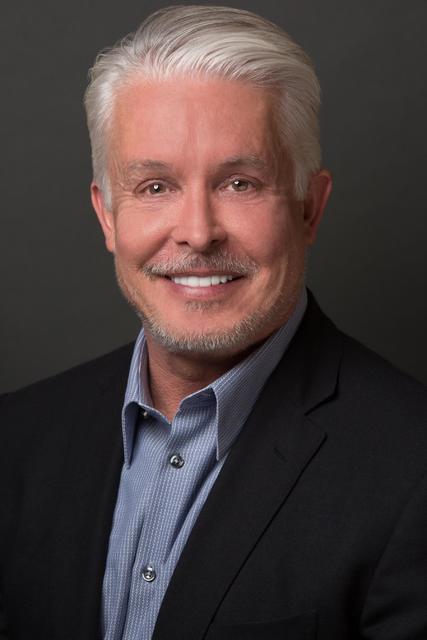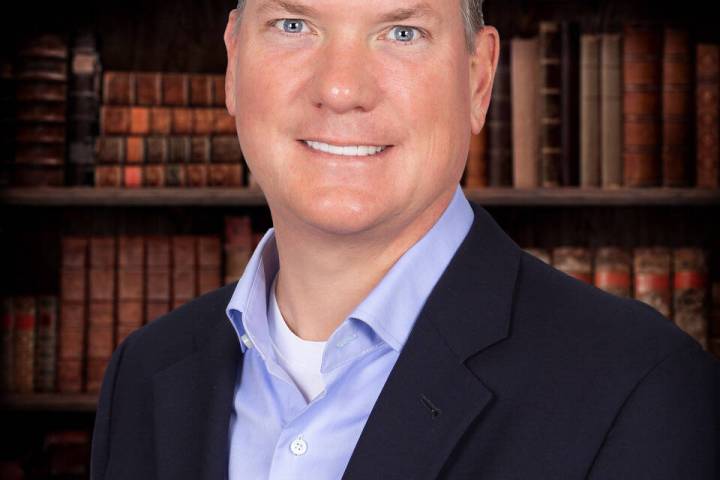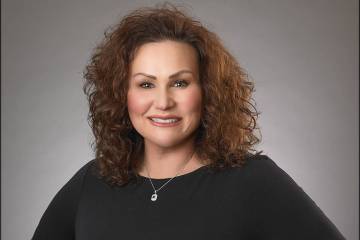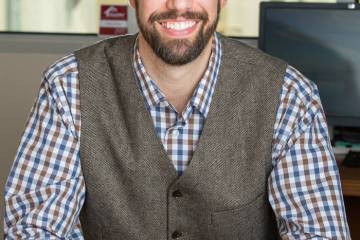
Las Vegas resident and entrepreneur Mark Black owns four local businesses and also runs a 501(C)3 nonprofit organization, LillieMon. Provenance Healthcare, at 5155 S. Durango Drive, focuses on genetic research that helps predict and identify health problems and works with patients to develop preventative care strategies and testing to aid in early detection and treatment.
The other three businesses are Origin Consults, a data management and consulting company for the utilities industry; Origin Holdings Inc., a private investment equity firm that provides working capital and hands-on management expertise to young, emerging companies; and The Trusted Cloud Co. is a technology innovation company focused on internet privacy technology and applications that support personal data management and interoperability.
Having grown up in Monroe, Louisiana, a small town of 50,000 in the northeast part of the state, Black attended Louisiana State University where he earned a degree in petroleum engineering. After graduating in 1983, he went to work for Atlantic Richfield, where he remained for six months before resigning. Afterward, he gained employment with Arthur Andersen &Co., which then was considered one of the “Big Five” accounting firms. According to Black, it was during his three years at the firm that “the seeds of professional services consulting and business were planted.”
Although he’s never written a business plan, Black has opened six businesses during his career. Describing himself as an organized, conscientious and determined person, he credits his instinct as much as anything for his success.
Q: Having started multiple types of businesses, do you find it challenging to balance the complexities of crossing over into various industries? How do you maintain your focus on an individual business?
A: All of it is challenging. It is interesting that you have dialed in to the most complex aspects of what I do. Early in my career, I was challenged time and time again with shifting across different business scenarios in a variety of industries. This was not by design, but it was the nature of consulting in large consulting firms. Over time, I’ve developed a few survival patterns — key skills that I employ today to meet these challenges.
These include asking questions, reading and transitioning quickly into the business conversation, and testing my knowledge by finding the right people who are willing to tolerate my questions.
I have found that it is important to pick up the vernacular in an industry. It takes courage to speak up and converse with industry veterans, but most people do not mind telling me what they know, as long as I demonstrate a reasonable level of humility. I find the more that I converse and listen, the more I learn.
Knowing what I know, and easily confessing what I do not, I am very quick to recognize my level of knowledge. Behind that confession, I realize I am not stupid, just ignorant. I am comfortable being ignorant. I have found that many people are kindhearted and are willing to teach.
It’s also imperative to gain leverage in my day with effective hiring and delegation. There is a limit to my abilities, which is why it is absolutely important to find analytical, creative staff to back me up. I could not possibly be “in the weeds” in multiple businesses. The people I hire must demonstrate that they are capable of managing the details before I back away. I tend to shift from one business to the next, using my time judiciously. I always maintain my capability to descend to the smallest detail, if need be.
I need to remain patient with the process, others and myself. The entire process takes time, and I can be very forgiving of myself and of others. I have only one personality aspect I cannot tolerate, which is lack of effort from myself or from those who work for me. If someone is demonstrating their concern for the business, then they can stay on my team, regardless of the mistakes.
Q: What education and training did you receive that you believe was most helpful in becoming an entrepreneur? How would you advise others interested in becoming a “serial business starter?”
A: The best training I ever got was at home. My mother was a self-starter. She knew how to tackle the unknown, and she was fearless. She put one foot before the other and could cover a lot of territory when she wanted to. … Learning how to be organized, motivated and self-starting are skills developed early in life. My home life was never lazy.
Two skills that I find are intuitive and I am privileged to have are analytical and creative abilities. I think I am a “serial entrepreneur” because I am creative and enjoy pulling things together into a vision. Being analytical makes me good with numbers and logic patterns, both of which make businesses successful.
Q: Do you continue to own and operate all the businesses that you start, or do you sell them once they’re established? If you continue to run them, how do you plan to advance them so they continue to thrive?
A: I have sold one business, but it was uneventful. I was very young and was sure-footed enough to negotiate the proper deal for myself. I have closed two: the first one I closed was when I was 29 years old, and I was not in the right frame of mind to continue the pursuit. Another I closed in 2014, when I determined that the partners I was considering were ill-equipped to manifest their ideas into a monetized business.
I am a firm believer that if the businesses continue to operate, providing the intended fundamental values as outlined in their missions, then success will come. I do not foresee any significant reasons that they would fail.
They are all operating using the following principles that are near and dear to my core beliefs: to provide sustained opportunity for the business to deliver a high level of customer and employee satisfaction; perform in a market niche in which the business has expertise and experience in the field; perform in an industry undergoing significant change where new ideas germinate, change agents are valued and business growth is probable; and develop a market presence and business portfolio in a manner that sustains high quality, repeatable results for customers and predictable low-risk, profitable results for the business.
Q: What is the difference in the skill set it takes to open businesses as opposed to successfully maintaining and growing them over time?
A: It is pretty simple in my mind. To open a business, you must have the creative talents, realistic expectations and courage to see it through, or just do not go there. The number of unknowns is vast, and incremental progress has to be a sufficient diet for the individual starting a business — one baby step at a time. When maintaining a business, enjoy the steadiness and have the patience for growth, which is sometimes slow. At this point, you can take pleasure in the transactional flow of a business model rather than the upstart aspects.
Q: Do you have any ambitions or plans to venture into other business sectors or industries, and if so, what are they and when?
A: At this time, my hands are full. I will not pursue any further opportunities. I am not a passive pursuer, so when people ask me to invest in their ventures, I typically do not accept. I have to be hands-on.






